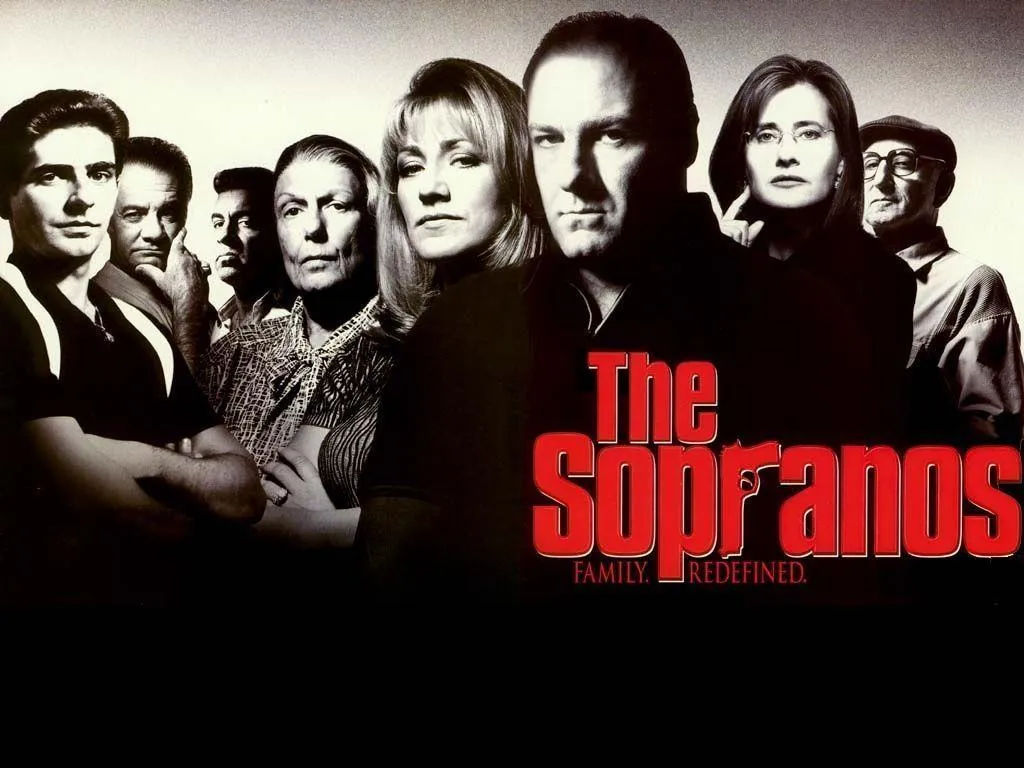Twenty-five years ago, a groundbreaking series premiered on HBO that would redefine the crime drama genre and revolutionize cable television. The Sopranos, created by David Chase, followed the life of Tony Soprano, a New Jersey mob boss who juggled his family and criminal activities while suffering from panic attacks and seeking therapy. The show was a cultural phenomenon that captivated audiences and critics, earning numerous awards and accolades. As Max celebrates the 25th Anniversary of The Sopranos with special events and never-before-seen footage, we reflect on how the show changed the cable television landscape and influenced modern TV dramas.
A Cultural Phenomenon
The Sopranos wasn’t merely a hit show; it transcended the medium of television, earning immense popularity and critical acclaim. Winning 21 Primetime Emmy Awards, five Golden Globe Awards, and two Peabody Awards, it set the standards for quality programming. The show’s central character, Tony Soprano, portrayed by the late James Gandolfini, was an antihero who broke the genre’s conventions through his complex character challenging viewers’ moral judgments and evoking both repulsion and sympathy.
Revolutionizing Cable Television
Beyond changing the rules of television storytelling, The Sopranos revolutionized the industry’s approach to cable television. It established cable as a platform for high-quality, cinematic, and original programming, attracting top-tier talent and pushing the boundaries of what was possible on TV. This paradigm shift extended beyond HBO, inspiring other cable networks to create their groundbreaking series. For instance, AMC launched Mad Men and Breaking Bad, both critically acclaimed dramas that followed the transformation of their protagonists from ordinary individuals to powerful figures in their respective fields. FX produced The Shield and Sons of Anarchy, gritty and violent dramas exploring the lives of corrupt cops and outlaw bikers. Showtime developed Dexter and Homeland, thrilling dramas featuring antiheroes who were serial killers and terrorists.
Pioneering Character Development
At the heart of The Sopranos is unparalleled character development. The show created multi-dimensional characters who felt real and relatable, with their flaws, strengths, and personalities. The show also explored the psychological themes and elements that shaped the characters, such as their family dynamics, personal traumas, mental health issues, and moral dilemmas. The show’s character development raised the bar for future TV shows by demonstrating how to create compelling, multi-dimensional characters capable of entertaining and confronting viewers.
One of the most notable examples of the show’s character development is Tony Soprano himself. Tony is arguably one of the most complex and influential characters in TV history, as he embodies the contradictions and conflicts of a modern antihero. He is a violent and ruthless mob boss who also suffers from panic attacks and seeks therapy. He is a loving father and husband who cheats on his wife and neglects his children. He is a loyal friend and mentor who lies and manipulates his associates. He is a man who tries to balance his personal and professional lives while also struggling with his identity, morality, and legacy. Tony’s character development is enhanced by the show’s exploration of his relationship with his therapist, Dr. Jennifer Melfi, played by Lorraine Bracco. Their sessions provide insight into Tony’s psyche, as well as the themes and issues of the show. Through their conversations, the show examines the nature of therapy, the ethics of treating a criminal, the role of violence in society, and the meaning of the American Dream.
Another example of the show’s character development is Carmela Soprano, played by Edie Falco. Carmela is Tony’s wife and the mother of their two children, Meadow and A.J. She is a devout Catholic who also enjoys the lavish lifestyle that Tony’s illegal activities provide. She is a loyal and supportive spouse who also resents and fears Tony’s infidelity and violence. She is a caring and protective mother who also struggles with her ambitions and aspirations. Carmela’s character development is highlighted by the show’s portrayal of her inner conflicts, as well as her interactions with other characters, such as her priest, her therapist, and her lover. Through her arc, the show explores the themes of marriage, family, religion, feminism, and self-fulfillment.
Breaking Traditional Narrative Structures
The Sopranos wasn’t just groundbreaking in its narrative choices; it revolutionized storytelling itself. The show adopted a non-linear and unconventional narrative structure, breaking the rules and expectations of the genre. The show also used ambiguous and open-ended narratives, leaving viewers to interpret and question the meaning and outcome of the story. The show’s narrative structure contributed to its innovation and influence, as it challenged viewers to engage and think critically about the story.
One of the most distinctive features of the show’s narrative structure is its use of dream sequences, flashbacks, and hallucinations. These storytelling devices offer glimpses into the characters’ subconscious, providing depth to their experiences. For example, significant moments involve characters experiencing revealing dreams that impact their actions in the real world. The show’s narrative structure also employs ambiguous and open-ended endings, inviting viewers to interpret the conclusions for themselves.
Notable instances include pivotal moments in various seasons where characters face challenges or consequences. The episodes conclude with scenes that leave room for interpretation, creating thoughtful pauses in the storyline. The series finale, known for its iconic diner scene, adds another layer of mystery with an unexpected turn of events that leaves viewers pondering the characters’ fates without revealing explicit details.
Legacy and influence
The Sopranos legacy continues to be felt today, as it inspired a generation of creators and helped usher in what many consider a golden age of television. The Sopranos not only changed the rules of television storytelling, but it also changed the industry’s approach to cable television. It established cable as a platform for high-quality, cinematic, and original programming, attracting top-tier talent and pushing the boundaries of what was possible on TV. It demonstrated that cable networks could produce content that rivaled traditional broadcast networks and that viewers were willing to pay for premium subscription services to access such content. It also proved that cable networks could take more creative risks and experiment with different formats, genres, and themes, without being constrained by the ratings, regulations, and expectations of the mainstream media.
The show’s impact can be seen in various aspects of popular culture and the television industry, such as:
- The popularity of mob dramas and crime-related TV shows, such as Boardwalk Empire, The Wire, Peaky Blinders, Narcos, and The Irishman.
- The emergence of complex and flawed antiheroes as the protagonists of TV shows, such as Walter White, Don Draper, Carrie Mathison, Frank Underwood, and Villanelle.
- The use of non-linear narratives and ambiguous endings as storytelling devices, such as in Lost, The Leftovers, Westworld, and The OA.
- The incorporation of psychological themes and elements into TV shows, such as in the series prequel film, The Many Saints of Newark, which explores the origins of Tony Soprano and his mental health issues.
- The celebration of The Sopranos’ 25th Anniversary includes never-before-seen deleted scenes, behind-the-scenes content, fan screenings, and pop-up restaurants.
One of the most significant aspects of the show’s legacy and influence is its prequel movie, The Many Saints of Newark, which explores the origins of Tony Soprano and his mentor Dickie Moltisanti in the turbulent 1960s and 1970s. The movie, directed by Alan Taylor and written by David Chase and Lawrence Konner, features several characters from the original series, as well as new ones, played by a stellar cast including: Alessandro Nivola, Jon Bernthal, Vera Farmiga, Corey Stoll, Leslie Odom Jr., and Michael Gandolfini, who portrays a young Tony Soprano, following in the footsteps of his late father James Gandolfini. The movie fills in some of the gaps and mysteries from the series, such as who killed Dickie Moltisanti, how Tony became involved in the mob, and how his relationship with his mother Livia shaped his personality and psyche. The movie also depicts the rise of African-American gangs in Newark and the racial tensions and riots that erupted in the city. The movie is a tribute to the show and its fans, as well as a potential launchpad for future installments in The Sopranos universe.
In conclusion, The Sopranos’ 25th Anniversary is a momentous occasion to reflect on its profound impact on cable television and the entertainment landscape. As we revisit the show’s significance, we emphasize its enduring relevance and influence. The show has been widely praised and acclaimed by critics and audiences alike, earning an average rating of 92% on Rotten Tomatoes, 96 out of 100 on Metacritic, and 9.2 out of 10 on IMDb. It has not only redefined the crime-drama genre, but it has also given viewers a glimpse into the complexities of human nature. Whether you’re a fan of the show or not, it remains a must-watch for anyone who wants to experience the art of storytelling at its finest.















